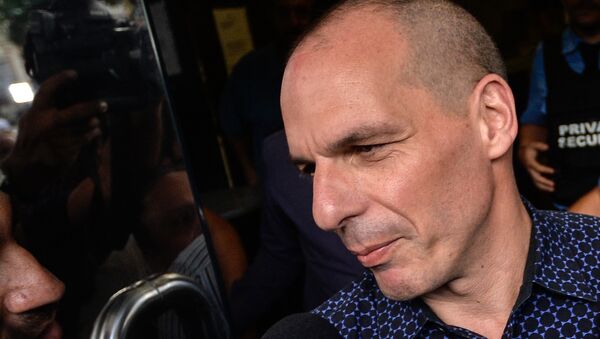"Thus, the process of establishing relations with the Chinese government had begun. During a visit to Beijing, Greek Deputy Prime Minister Yannis Dragasakis reached an informal agreement on direct investment in specific sectors and, simultaneously, a credit line for the Greek government, should we start to issue bonds," Varoufakis stressed.
The aim was to show that the Greek authorities had the ability to enter into agreements with other countries so that it could put pressure on the European Central Bank (ECB), he noted.
"This agreement was overturned, though, with a phone call from Berlin," Varoufakis highlighted.
The Greek economy has been severely strained for several years, because of the country’s multibillion-euro debt, accumulated after the 2008 world economic crisis decimated the state.
In July 2015, Greece's international creditors signed an agreement with the country's government, approving a third bailout package for Athens worth 86 billion euros (about $95 billion) in exchange for highly unpopular austerity reforms such as pension cuts and tax hikes.



